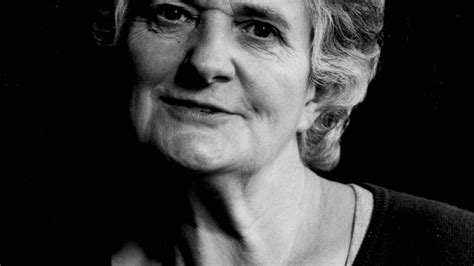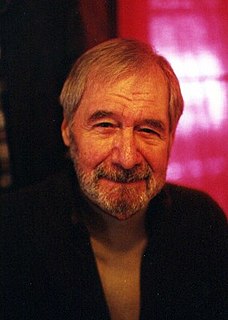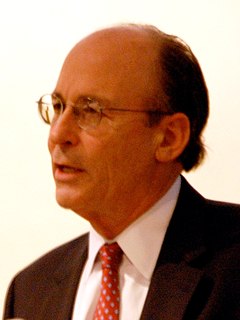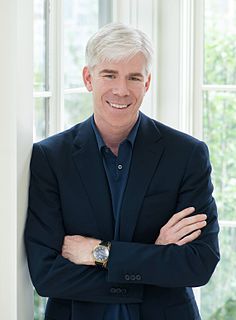Top 1200 Religious Texts Quotes & Sayings - Page 15
Explore popular Religious Texts quotes.
Last updated on December 19, 2024.
So we start with an oversignifying reader. Those texts that appear to reward this reader for this additional investment - text that we find exceptionally suggestive, apposite, or musical - are usually adjudged to be 'poetic'. ... The work of the poet is to contribute a text that will firstly invite such a reading; and secondly reward such a reading.
For me, fear manifests itself in snoozing and inactivity. I just become so sleepy, any time of day, when something needs to be done. I sometimes go days without responding to texts or reading books or being able to process much of anything beyond the sun slowly creeping through my living room windows.
In some of the classes, especially the introductory religion courses I took, the professors can veer into a particular strain of religious anti-intellectualism. Professors typically aren't given tenure at Liberty, so there's pressure to hew to the party line on religious and social issues. I didn't see a whole lot of my professors encouraging critical thinking among their students. Which isn't to say that students don't engage critical thinking skills at Liberty - just that it wasn't part of my classroom experience there.
Common to all these types is the anthropomorphic character of their conception of God. In general, only individuals of exceptional endowments, and exceptionally high-minded communities, rise to any considerable extent above this level. But there is a third stage of religious experience which belongs to all of them, even though it is rarely found in a pure form: I shall call it cosmic religious feeling. It is very difficult to elucidate this feeling to anyone who is entirely without it, especially as there is no anthropomorphic conception of God corresponding to it.
When the Jews were being persecuted by the Nazis in 1944 we passed the War Refugee Act, which focused on rescuing Jews, a religious group. But if the religious group is the subject of the persecution based on their religion, it's perfectly OK for a First Amendment-bound society to emphasize their rescue, just as it is perfectly OK to emphasize the fact that many, if not all of the perpetrators of Islamic terrorism, come from countries with a history of supporting terrorism.
The issues which today confront the nation are clearly defined and so fundamental as to directly involve the very survival of the Republic. Are we going to preserve the religious base to our origin, our growth and our progress, or yield to the devious assaults of atheistic or other anti-religious forces? Are we going to maintain our present course toward State Socialism with Communism just beyond or reverse the present trend and regain our hold upon our heritage of liberty and freedom?
Legal systems, at both the national and international level, are therefore required to recognize, guarantee and protect religious freedom, which is a right intrinsically inherent in human nature, in man's dignity as a free being, and is also an indicator of a healthy democracy and cone of the main sources of the legitimacy of the State. Religious freedom ... favors the development of relationships of mutual respect between the different Confessions and their healthy collaboration with the State and political society, without confusion of roles and without antagonism.
You should be real witnesses of a world of doing and acting differently. But in life it is difficult for everything to be clear, precise, outlined neatly. Life is complicated; it consists of grace and sin. He who does not sin is not human. We all make mistakes and we need to recognise our weakness. A religious who recognises himself as weak and a sinner does not negate the witness that he is called to give, rather he reinforces it, and this is good for everyone. What I expect of you therefore is to give witness. I want this special witness from religious.
A comprehensive doctrine, either religious or secular, aspires to cover all of life. I mean, if it's a religious doctrine, it talks about our relation to God and the universe; it has an ordering of all the virtues, not only political virtues but moral virtues as well, including the virtues of private life, and the rest. Now we may feel philosophically that it doesn't really cover everything, but it aims to cover everything, and a secular doctrine does also.
Like lots of baby boomers, I was brought up on archaic anthropomorphism. Upstanding Christian dogs. Rabbits with family values. Because the ancient texts and pictures were sacred - Potter, Milne and the rest. Even concerned parents who knew Freud and Jung never saw the contradictions in feeding us on them.
Among the features peculiar to the political system of the United States is the perfect equality of rights which it secures to every religious sect. [...] Equal laws protecting equal rights, are found as they ought to be presumed, the best guarantee of loyalty, and love of country; as well as best calculated to cherish that mutual respect and good will among citizens of every religious denomination which are necessary to social harmony and most favorable to the advancement of truth.
In order to teach a course in the history of Western religious thought, I had to do a great deal of research in the writings within the Judaic and Christian traditions and I was astonished to find in those writings philosophical thought of great power and sophistication. These writings completely blew away all my opinions about what I had taken to be the irrationality or immaturity of religious ideas, opinions which were and still are fashionable in many intellectual and literary circles today.
The moral problem of abortion is of a pre religious nature because the genetic code is written in a person at the moment of conception. A human being is there. I separate the topic of abortion from any specifically religious notions. It is a scientific problem. Not to allow the further development of a being which already has all the genetic code of a human being is not ethical. The right to life is the first among human rights. To abort a child is to kill someone who cannot defend himself.
Almighty God hath created the mind free. All attempts to influence it by temporal punishments or burthens...are a departure from the plan of the holy Author of our religion...No man shall be compelled to frequent or support religious worship or ministry or shall otherwise suffer on account of his religious opinions or belief, but all men shall be free to profess and by argument to maintain, their opinions in matters of religion. I know but one code of morality for men whether acting singly or collectively.
This means that if a person fulfills his or her vocation as a steelmaker, attorney, or homemaker coram Deo, then that person is acting every bit as religiously as a soul-winning evangelist who fulfills his vocation. It means that David was as religious when he obeyed God’s call to be a shepherd as he was when he was anointed with the special grace of kingship. It means that Jesus was every bit as religious when He worked in His father’s carpenter shop as He was in the Garden of Gethsemane.
The idea that we live in a post-modern culture is a myth. In fact a post-modern culture is an impossibility; it would be utterly unlivable. Nobody is a post-modernist when it comes to reading the labels on a medicine bottle versus a box of rat poison! You better believe that texts have objective meaning!
One of the things that sets the Bible apart from all other ancient religious writings is its scientific accuracy. Without exception, every other ancient religious writing contains certain scientific errors. For example, Muhammad taught in the Qur'an that the sun descends down into a muddy spring. The Hindu Vedas state that the Earth is flat and triangular, that earthquakes are caused by elephants shaking themselves under it. You'll never read absurd statements like those in the Bible.
Half the people in the world think that the metaphors of their religious traditions, for example, are facts. And the other half contends that they are not facts at all. As a result we have people who consider themselves believers because they accept metaphors as facts, and we have others who classify themselves as atheists because they think religious metaphors are lies.
Determining the value of individual texts has been an ideological scuffle in literary criticism for centuries: but the environmental cost of printing them hauls this dispute from the ivory tower into day-to-day decision-making. Is it right to write? The publishing industry is slowly beginning to commit to using sustainably harvested trees.
Propaganda's content increasingly resembles information. It has even clearly been proved that a violent, excessive, shock-provoking propaganda texts leads ultimately to less conviction and participation. The listeners critical powers decrease if the propaganda message is more rational and less violent.
Looking back through the mists of time, I recall some distinctly religious experiences in my teens--when I was only fourteen years old to be precise. These experiences opened my mind to the idea of a Creator and that caring for other living things was a Christian duty. My parents were not strongly religious at the time and when I announced at that youthful age that I wanted to be a priest, it not unnaturally provoked some incredulity, even mirth. In the same year, I became a vegetarian, which--for family and friends--was even more vexing.
If enough people are sensitive to the tragedy of Tibet, I think it will produce a change politically as well. But furthermore, it's important for the people in Tibet. Now communication is such [that] people know what is happening. Even Tibetan people would know that the Interfaith or the international group of religious people - that everybody who is religious is taking up their cause. It would help them a lot if we give them courage, and that in itself is enough.
We could encourage the best qualities of youthfulness - curiosity, adventure, resilience, the capacity for surprising insight simply by being more flexible about time, texts, and tests, by introducing kids into truly competent adults, and by giving each student what autonomy he or she needs in order to take a risk every now and then. But we don't do that.
Man is a Religious Animal. He is the only Religious Animal. He is the only animal that has the True Religion--several of them. He is the only animal that loves his neighbor as himself and cuts his throat if his theology isn't straight. He has made a graveyard of the globe in trying his honest best to smooth his brother's path to happiness and heaven....The higher animals have no religion. And we are told that they are going to be left out in the Hereafter. I wonder why? It seems questionable taste.
When I get interested in a new topic I teach a class on it. There's a graduate seminar I teach in which the students and I try to expand the terminology we use to talk about poetry as well as expand our notion of what makes a poem - we read source texts on architecture, dance, photography, film and the graphic novel.
In conversations and visits with friends from Africa, Asia, Latin America, the Middle East, and Eastern Europe I am often struck by the gaps in our Western theological approaches. The most common texts used in evangelical schools have been written in the US, UK, and Australia. However, they miss some fundamental contextual issues.
I was interested in the question of the power of religious organizations to effect public policy in a negative way. When I was in college, and I found out at that time the Catholic Church was in such control of everything in communities, including in progressive places like New York - that a roommate of mine was not able to obtain an abortion with his girlfriend, even in places like New York. What I learned at that moment was the extraordinary clout that religious organizations can have to impose their theological views on others. And I found it exasperating and dangerous.
If no one had ever challenged religious authority, there’d be no democracy, no public schools, women’s rights, improvements to science and medicine, evolution of slavery and no laws against child abuse or spousal abuse. I was afraid to challenge my religious beliefs because that was the basis of creation—mine anyway. I was afraid to question the Bible or anything in it, and when I did, that’s when I became involved with PFLAG and realized that my son was a perfectly normal human being and there was nothing for God to heal because Bobby was perfect just the way he was.
There are two kinds of comprehensive doctrines, religious and secular. Those of religious faith will say I give a veiled argument for secularism, and the latter will say I give a veiled argument for religion. I deny both. Each side presumes the basic ideas of constitutional democracy, so my suggestion is that we can make our political arguments in terms of public reason. Then we stand on common ground. That's how we can understand each other and cooperate.
Many expressions in the New Testament come naturally to the lips of all Protestants, and it furnishes the most pregnant and practical texts. There is no harmless dreaming, no wise speculation in it, but everywhere a substratum of good sense. It never reflects, but it repents. There is no poetry in it, we may say, nothing regarded in the light of beauty merely, but moral truth is its object. All mortals are convicted by its conscience.
Is the appointment of Chaplains to the two Houses of Congress consistent with the Constitution, and with the pure principle of religious freedom? In strictness the answer on both points must be in the negative. The Constitution of the U. S. forbids everything like an establishment of a national religion. The law appointing Chaplains establishes a religious worship for the national representatives, to be performed by Ministers of religion, elected by a majority of them, and these are to be paid out of the national taxes. Does this not involve the principle of a national establishment ... ?
I hold the view that the alchemist’s hope of conjuring out of matter the philosophical gold, or the panacea, or the wonderful stone, was only in part an illusion, an effect of projection; for the rest it corresponded to certain psychic facts that are of great importance in the psychology of the unconscious. As is shown by the texts and their symbolism, the alchemist projected what I have called the process of individuation into the phenomena of chemical change.
At the school I attended, the clergyman who ran the cathedral school in Shanghai would give lines to the boys as a punishment. They expected you to copy out, say, 20 or 30 pages from one of the school texts. But I found that rather than laboriously copying out something from a novel by Charles Dickens, it was easier if I made it up myself.
Most teachers have little control over school policy or curriculum or choice of texts or special placement of students, but most have a great deal of autonomy inside the classroom. To a degree shared by only a few other occupations, such as police work, public education rests precariously on the skill and virtue of the people at the bottom of the institutional pyramid.
The issue of religious liberty is absolutely critical. America was founded on three different types of liberty: political liberty, economic liberty, and religious and civil liberty. It's remarkable that, one-by-one, these strands of liberty are coming under fierce attack from the Left. And that's particularly ironic because "liberal" derives from a word which means "liberty," the free man as opposed to the slave. This liberalism which we're saddled with today isn't a real liberalism at all, but a gangster style of politics masquerading as liberalism.
Our knowledge of the historical worth of certain religious doctrines increases our respect for them, but does not invalidate our proposal that they should cease to be put forward as the reasons for the precepts of civilization. On the contrary! Those historical residues have helped us to view religious teachings, as it were, as neurotic relics, and we may now argue that the time has probably come, as it does in an analytic treatment, for replacing the effects of repression by the results of the rational operation of the intellect.
It's true that in Romanian I feel more relaxed, as if I'm wearing slippers...but I came to this decision primarily for other reasons: I had only published three collections of texts in Romania. Even before my exile I was prohibited from publishing, I was ignored and forgotten. In going back to Romanian I had the opportunity to take my revenge.
Religion shows a pattern of heredity which I think is similar to genetic heredity. ... There are hundreds of different religious sects, and every religious person is loyal to just one of these. ... The overwhelming majority just happen to choose the one their parents belonged to. Not the sect that has the best evidence in its favour, the best miracles, the best moral code, the best cathedral, the best stained-glass, the best music when it comes to choosing from the smorgasbord of available religions, their potential virtues seem to count for nothing compared to the matter of heredity.
I am the greatest advocate of the Constitution....The only fault I find with the Constitution is, it is not broad enough to cover the whole ground. Although it provides that all men shall enjoy religious freedom, yet it does not provide the manner by which that freedom can be preserved, nor for the punishment of Government officers who refuse to protect the people in their religious rights, punish those mobs, states, or communities who interfere with the rights of the people on account of their religion. Its sentiments are good, but it provides no means of enforcing them.
If you read philosophical texts of the tradition, you'll notice they almost never said 'I,' and didn't speak in the first person. From Aristotle to Heidegger, they try to consider their own lives as something marginal or accidental. What was essential was their teaching and their thinking. Biography is something empirical and outside, and is considered an accident that isn't necessarily or essentially linked to the philosophical activity or system.
The courts demand that every religious person must accommodate a single atheist who might be 'offended' at the favorable mention of God's name. But no atheist can be forced to accommodate a single religious person who might be offended by the atheist's unbelief, or who wants to be part of the pluralism and diversity about which liberals regularly speak, but which is not broad enough to embrace people who believe in God.
As a Jew, I recognize the importance of Israel historically, liturgically: its place in our history and in our sacred texts. I fully recognize and appreciate that. I just think that, for me, a sole focus on Israel gets in the way of the pursuit of a relationship with God and a more spiritual existence within Judaism.
The lessons of religious toleration - a toleration which recognizes complete liberty of human thought, liberty of conscience - is one which, by precept and example, must be inculcated in the hearts and minds of all Americans if the institutions of our democracy are to be maintained and perpetuated. We must recognize the fundamental rights of man. There can be no true national life in our democracy unless we give unqualified recognition to freedom of religious worship and freedom of education.
Too many scholars think of research as purely a cerebral pursuit. If we do nothing with the knowledge we gain, then we have wasted our study. Books can store information better than we can--what we we do that books cannot is interpret. So if one is not going to draw conclusions, then one might as well just leave the information in the texts.
Me and my sister and my best friend get on the phone every morning and pray about different things. Even if we can't talk, because both of them have kids and I'm on the road, we shoot each other texts. 'What can I pray for you today?' It's a wonderful feeling knowing that you have women of God praying for you. There's nothing like that.
We have gone a long way toward civilization and religious tolerance, and we have a good example in this country. Here the many Protestant denominations, the Catholic Church and the Greek Orthodox Church do not seek to destroy one another in physical violence just because they do not interpret every verse of the Bible in exactly the same way. Here we now have the freedom of all religions, and I hope that never again will we have a repetition of religious bigotry, as we have had in certain periods of our own history. There is no room for that kind of foolishness here.
I am an Episcopalian who takes the faith of my fathers seriously, and I would, I think, be disheartened if my own young children were to turn away from the church when they grow up. I am also a critic of Christianity, if by critic one means an observer who brings historical and literary judgment to bear on the texts and traditions of the church.
If you are really spontaneous, people will think you are mad. If you go to a tree and start talking, or to a flower, people will think you are mad. If you go to a church and talk to a cross or to an image, nobody will think your are mad, they will think that you are religious. You are talking to a stone in a temple and everybody thinks you are religious because this is the authorized form.
I have a friend — or had a friend, now dead — Abdus Salam, a very devout Muslim, who was trying to bring science into the universities in the Gulf states and he told me that he had a terrible time because, although they were very receptive to technology, they felt that science would be a corrosive to religious belief, and they were worried about it… and damn it, I think they were right. It is corrosive of religious belief, and it’s a good thing too.























































